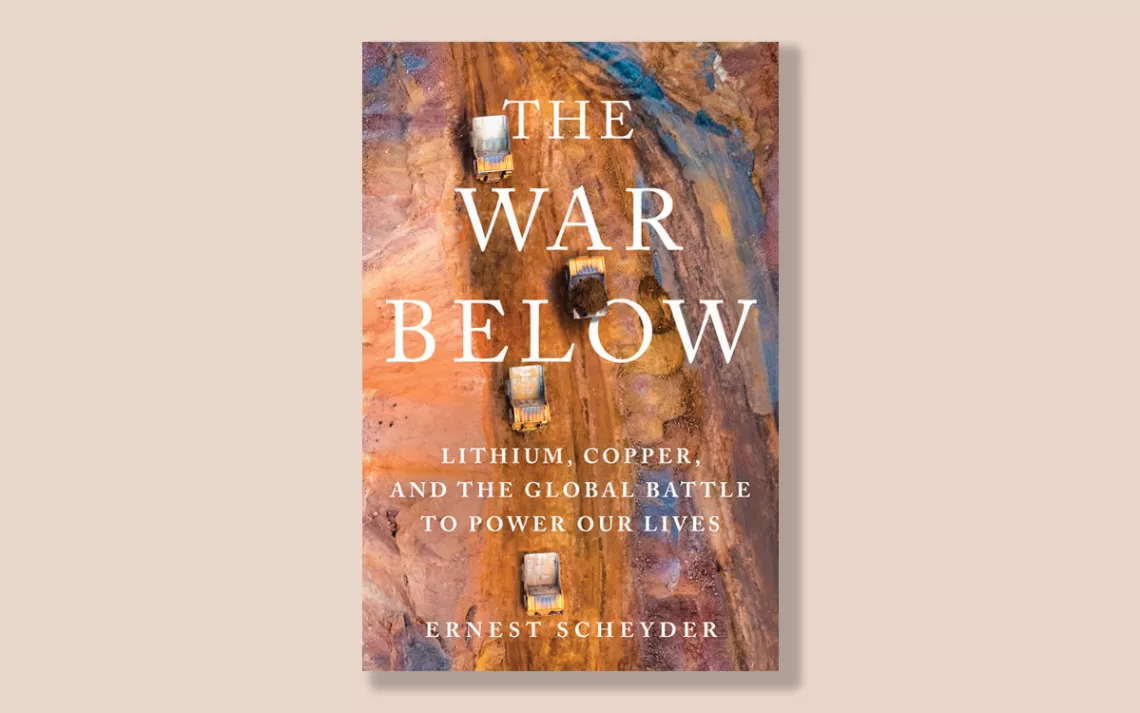Can We Sustainably Mine the Metals We Need for Renewable Energy?
In "The War Below," Ernest Scheyder considers the hard choices of the clean energy transition

Transitioning away from fossil fuels is going to take a lot of metals. Global production of lithium and graphite—essential components of EV batteries—will have to ramp up by 4,000 percent by 2040 to meet the Paris Agreement climate goals. Renewable technologies such as wind turbines and solar panels could not exist without heavy doses of metals we know, like copper, and metals we may have never heard of, like neodymium, promethium, samarium, and europium.
To get those metals, we have to mine them. And there's the rub. "The mines opposed by the environmental lobby in the near term are, paradoxically, necessary to battle climate change in the long term," Ernest Scheyder writes in The War Below: Lithium, Copper, and the Global Battle to Power Our Lives (One Signal/Atria, 2024). "Recycling alone cannot provide the materials needed to fuel the global green energy transition."
Scheyder, an energy correspondent for Reuters, travels across the United States to see how the energy transition is playing out for state and tribal governments, homeowners, and mining interests. He also meets with anti-mining activists, like Wendsler Nosie and the opposition group Apache-Stronghold, who staged a sit-in to block Rio Tinto's Resolution Copper mine in Arizona; and Sonya and Warren Snowdon, who helped organize against Piedmont Lithium's plan in North Carolina for the largest open-air lithium mine in the country.
The renewable energy transition, Scheyder makes clear, can still align with an ethos of responsible and sustainable mining that prioritizes community consultation from the start. A case in point is the Initiative for Responsible Mining Assurance, a framework for best mining practices that Earthworks and Tiffany & Co. helped form in 2006, which includes the third-party assessment of mining sites. "Everything, it increasingly seems, is going electric," Scheyder writes, "so the sourcing of these metals matters."
 The Magazine of The Sierra Club
The Magazine of The Sierra Club



